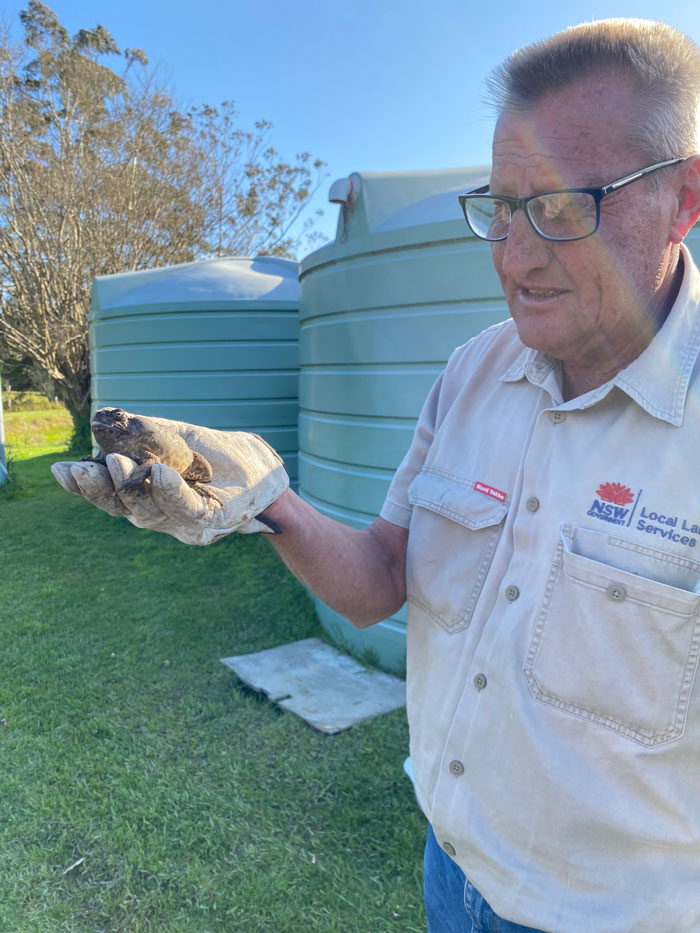
NSW biosecurity specialists have this week been called to a property at Mandalong, west of Lake Macquarie, following the detection of a colony of cane toads that were found under a sheet of tin.
The NSW Department of Primary Industries (DPI) is working with the property owner, local community, Local Land Services, local councils, NSW National Parks and Wildlife Service and the University of Newcastle to assess and eradicate the infestation.
Minister for Agriculture Dugald Saunders said the community now has a critical role to play in stopping these pests from spreading across the region and broader NSW.
"Community members must be diligent in keeping an eye out for and reporting any rogue toads, because the size of this colony indicates there could be many more in the area," Mr Saunders said.
"Residents can support DPI's surveillance efforts by checking their yards, looking under and around items on the ground, such as wood piles, pots and metal sheeting, where it's safe to do so.
"Now is not the time for complacency – cane toads pose a significant risk to our domestic and native fauna and it is critical we keep them out of NSW."
DPI's Vertebrate Pest Biosecurity Manager, Quentin Hart said 17 cane toads have been captured during the ongoing surveillance operation at Mandalong.
"Time is on our side as cane toads are unlikely to be very active until the weather warms, which gives us the opportunity to find them before they leave their hiding places to breed," Mr Hart said.
"We're asking for people who can confidently handle toads to safely capture them, place them in a high-sided container and contact NSW DPI. Wear protective clothing, disposable gloves, long sleeves and eye protection if you do handle a cane toad, as they can release toxic ooze from the glands behind their head."
NSW DPI advises people not to harm animals that they think may be cane toads, as it may be a native frog, but to contact a biosecurity authority who will be able to identify the species.
Residents can report cane toad sightings by calling DPI's Biosecurity Helpline on 1800 680 244, their local council or via an online form at https://forms.bfs.dpi.nsw.gov.au/forms/9247
Residents are also encouraged to use the free ToadScan app https://www.feralscan.org.au/toadscan/.
Cane toads are a serious biosecurity threat which can have devastating impacts on communities, pets, native wildlife and ecosystems due to their ability to spread to new areas.
Cane toads are found throughout much of Queensland, the wet–dry tropics of the Northern Territory and parts of Western Australia.






